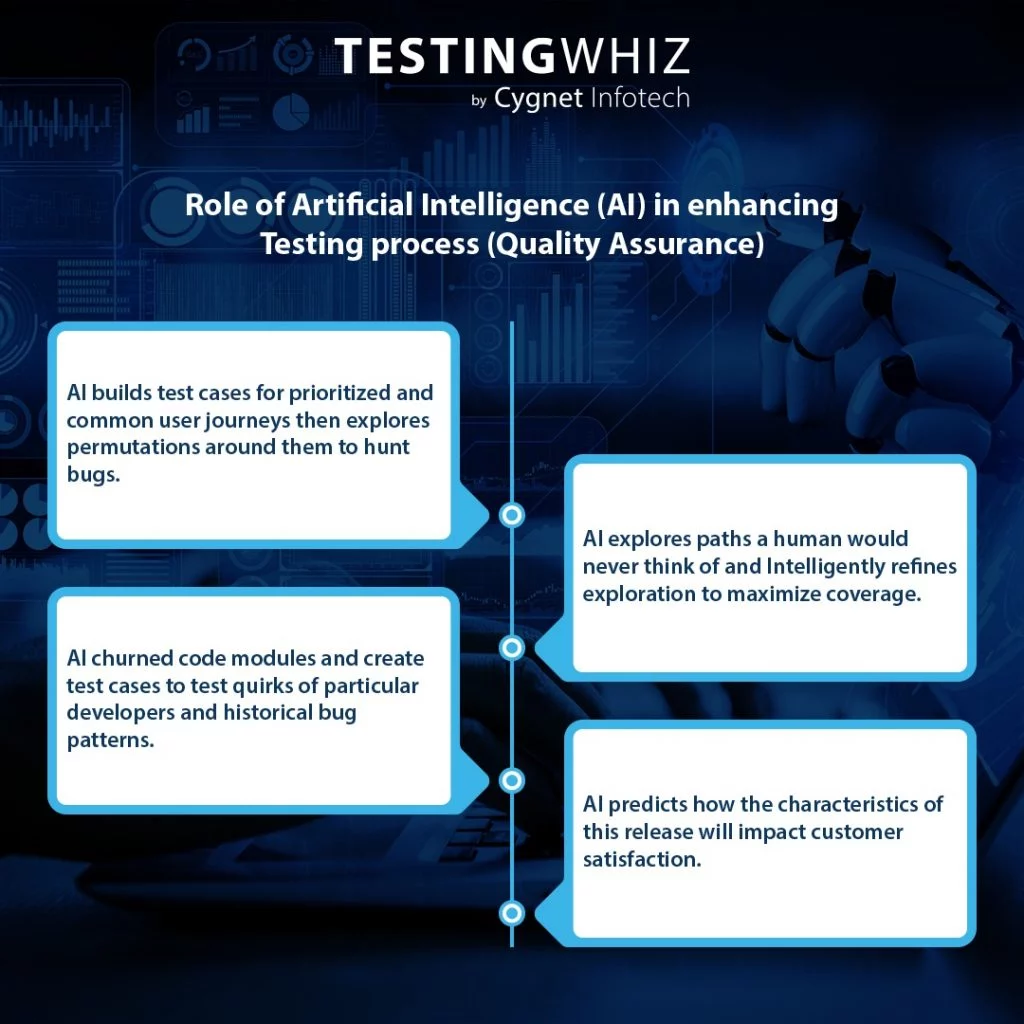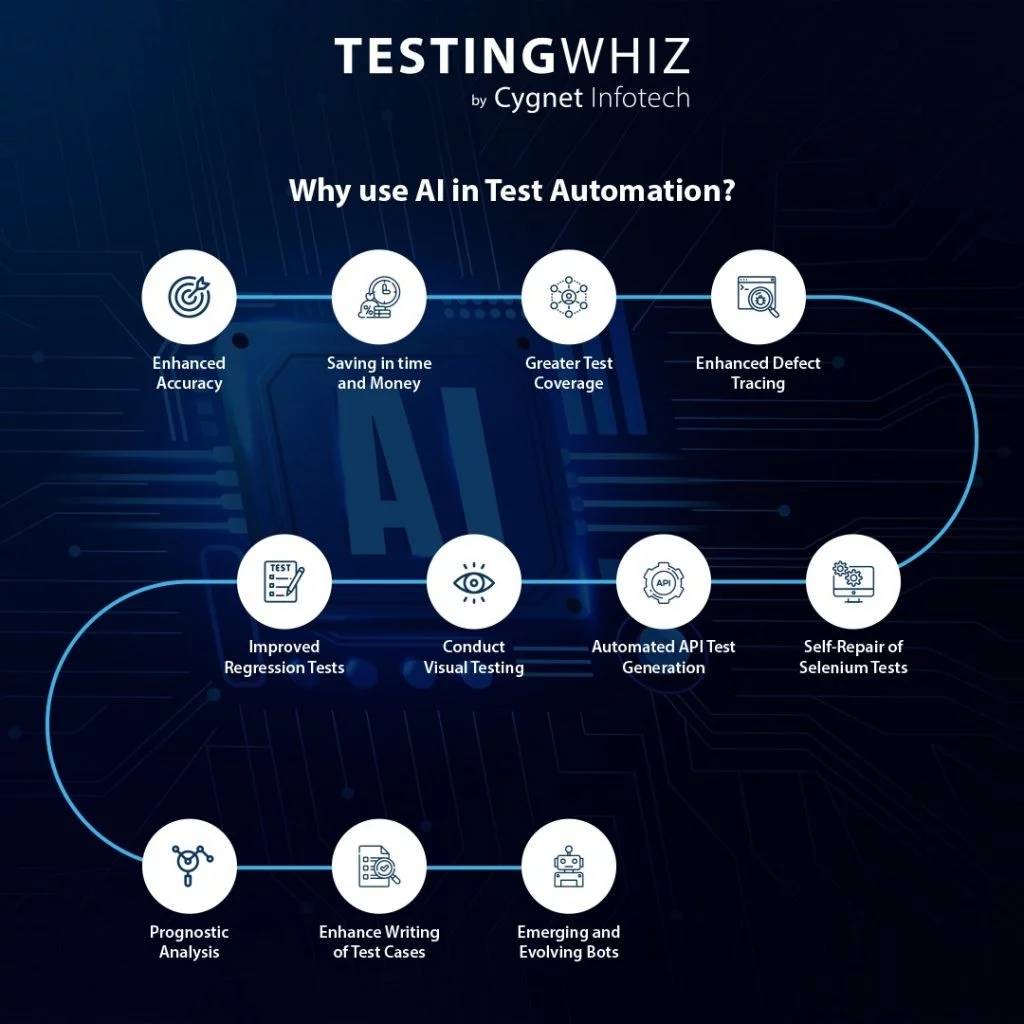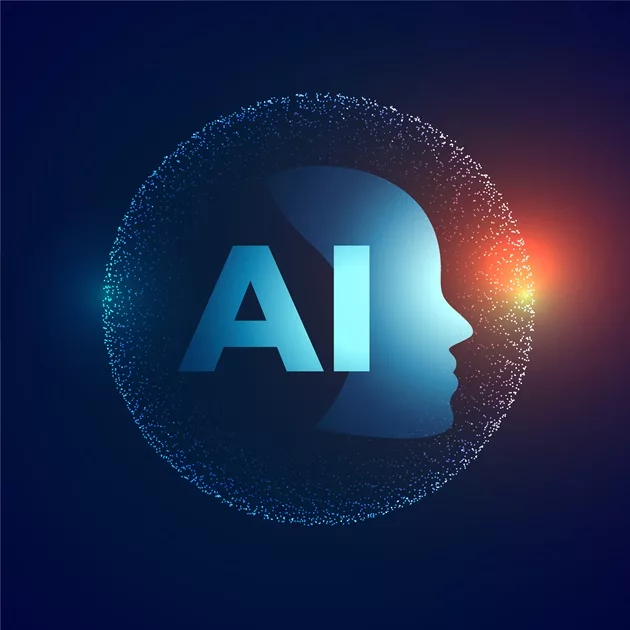With the regular transitions in the software development life cycle and acceptance of automation, it is very important to anticipate product requirements in advance and develop a system that is smart enough for catering to future trends is at its climax. Moving beyond the continuous and traditional testing approach is now necessary.
Considering the current situation, the testing function can be enhanced for accelerating delivery. The role of Artificial Intelligence to enhance quality control can help us reach there. For testing teams to stick to the agile method of development, leveraging traditional test automation is insufficient, thus making Artificial Intelligence and ML in test automation inevitable.
Software testing teams can use Artificial Intelligence (AI) and Machine Learning (ML) to upgrade their automation strategies. This can also help them overcome the challenges of frequent releases with the help of reporting and analytics. Quality Assurance engineers can utilize AI algorithms to classify and prioritize the scope for further test automation. Moreover, to reduce test loads, AI-powered testing applications can optimize test suites by detecting unessential test cases to ensure optimal test coverage by analyzing keywords from a Requirements Traceability Matrix (RTM).
Role of AI in enhancing testing process (Quality Assurance)

AI in testing can help to recognize errors which are detected during the application exploration phase. The QA teams can make use of AI testing tools to boost normal testing efforts while getting the best test coverage in speed and with great efficiency.
The importance of AI in Quality Assurance for system testing can also be seen in testing tools where the tests will be embellished with AI-powered visual verifications, which will give out a range of different results.
How testers work with AI:
- Implementation of AI through image-based testing
- Determining whether to run a test script
- Using AI spidering
- Monitoring API testing
- Automating tasks
Intelligent Automation powered by AI combines the best of automation tactics to provide greater outcomes. The main objective is to discard test coverage overlaps, optimize efforts with more predictable testing, and finally, move away from error detection and toward error prevention.

Organizations now have high-calibre AI algorithms for pattern analysis and analyzing large amounts of data, resulting in more factual run-time choices. Artificial Intelligence algorithms can scan the code during software, suggest major changes in functionality, and compare them to the requirements to create test cases. This results in the optimization of testing and the prevention of judgments on hotspots that might lead to failure.
Organizations may revive their core and make every individual more productive in their day-to-day work using Intelligent Automation solutions, resulting in optimal value and efficiency.
Benefits of using AI technology in QA
Testing Process:
Rather than going through thousands of lines of codes, AI will be able to sort through the log files, scan the codes, and catch errors within seconds. AI provides better and more accurate results as it lacks Burnout Syndrome. Also, AI algorithms can evolve with code changes. It can acclimate and identify new functions and can be programmed to decide if something is a new feature or a defect rising out of code change.
Intensely scrutinized build release:
By using Artificial Intelligence (AI) in Quality Assurance, it becomes possible for AI development companies to audit identical applications and determine what contributed to their success in the market. After knowing the market requirements, new test cases can be made for ensuring that the application works smoothly and achieve specific goals.
Predictive Analytics:
AI can utilize existing consumers and examine data to determine how users’ necessities and browsing practices will advance. This allows Quality Assurance professionals and developers to customize the content on the application for better user engagement with ML, the platform consisting of AI will improve with analyzed user behaviour and provides progressively more exact forecasts.
Improved regression testing:
With fast deployment, there is always a need for regression testing, and sometimes the testing is to the point where it is difficult for people to practically keep up. Organizations can utilize AI for more tiresome regression testing tasks, where AI algorithms can be used to create test content.
In the case of a UI change, Artificial Intelligence can be utilized to scan for colour, shape, or size. Artificial Intelligence can also be used for approval of the progressions that a Quality Assurance tester may miss.
Conclusion
AI in Quality Assurance helps businesses enhance their automation frameworks and quality assurance methods. Organizations may face a variety of challenges when using AI and machine learning algorithms to test applications and identify the exact use cases, out what really needs to be done, verify app behaviour based on data input, and test applications for functionality, performance, scalability, security, and reliability. The Whiz consulting team of TestingWhiz can help organizations identify all such challenges related to AI in codeless test automation and resolve those challenges.
Let Cygnet.One be your technology partner in growth and innovation. Reach out to us today!























